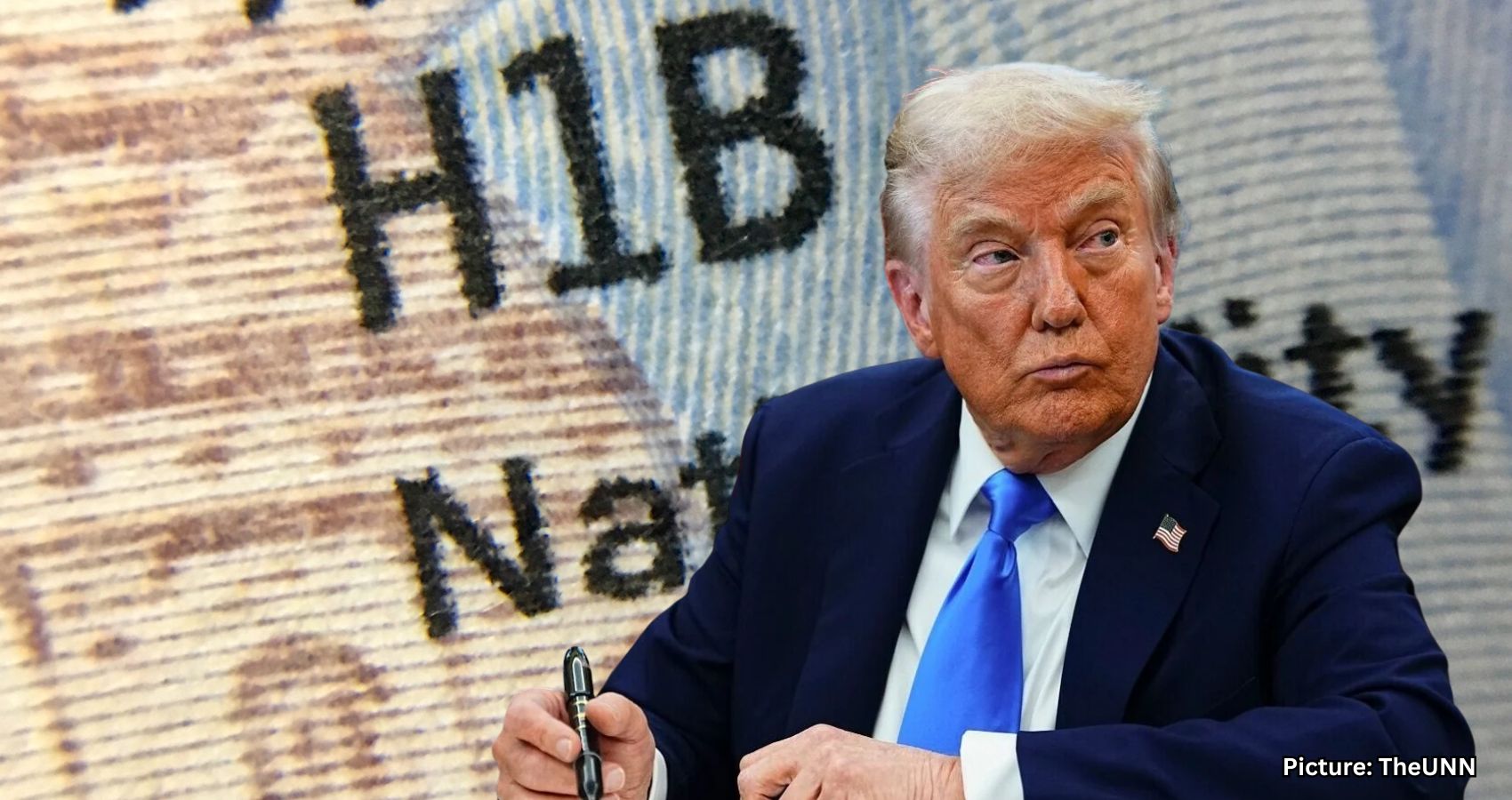The U.S. government’s recent announcement of a $100,000 fee hike on H-1B visa petitions has sparked widespread anxiety among tech professionals in both the U.S. and India.
In a significant move, the U.S. government has announced a steep $100,000 fee increase on H-1B visa petitions, causing a wave of anxiety among tech professionals across the country. As news of the hike spread, many individuals began to assess the potential impact on their careers and futures.
Thousands of miles away in India, families of H-1B visa holders found themselves in a state of panic, grappling with uncertainty regarding travel plans, financial commitments, and the futures of their loved ones residing in the U.S. The announcement has transformed an already high-stakes application process into a source of overwhelming stress, with phones, laptops, and WhatsApp threads buzzing with activity around the clock.
Shubra Singh, a biotech professional currently in the U.S., experienced the tension firsthand during a Saturday night dinner in a Pittsburgh bar. Surrounded by eight Indian friends, all tech professionals on H-1B visas, she witnessed their focus shift entirely to their phones as they anxiously tracked updates on President Donald Trump’s decision regarding the fee increase. What began as a casual evening quickly turned tense, with conversations drowned out by notifications and urgent searches for clarity.
“Our families are sharing all kinds of articles on the H-1B situation,” Singh noted, highlighting the palpable anxiety among her peers. According to reports, Indians constitute the largest group of H-1B visa holders in the U.S., making up approximately 71%, while Chinese nationals account for about 11.7%. The recent proclamation to raise H-1B fees has left many questioning their employment prospects and reconsidering their plans in the U.S.
The impact of the fee hike was felt in India’s stock market as shares of major IT firms declined following the announcement. Investors reacted by offloading shares of leading IT outsourcing companies, including Infosys, Tech Mahindra, Wipro, HCL Technologies, and Tata Consultancy Services. Smaller and mid-sized firms, such as Persistent Systems, Coforge, Mphasis, Firstsource Solutions, and Cyient, also experienced stock price drops ranging from 1.7% to 4.2% during early trading in London.
Analysts are concerned that the $100,000 fee could deter Indian students from pursuing opportunities in the U.S. JPMorgan’s Toshi Jain remarked that this steep fee could act as a new “tax” on securing employment after graduation. Prashanth Prakash, a partner at the Indian venture capital firm Accel, echoed these sentiments, emphasizing the growing challenges for Indian students aspiring to study and work in the U.S.
Meanwhile, panic ensued on an India-bound Emirates flight shortly after the announcement. At San Francisco International Airport, several Indian passengers disembarked just before takeoff, leading to a three-hour delay. Videos posted on social media captured the chaotic scene, with travelers anxiously scrolling through their phones and standing in the aisles, uncertain about their ability to return to the U.S.
The captain of the Emirates flight addressed passengers, acknowledging the unprecedented circumstances and allowing those who wished to leave the aircraft to do so. “Ladies and gentlemen, it’s the captain speaking. Due to the current circumstances, obviously, that are unprecedented for us here at Emirates, we are aware that a number of passengers do not wish to travel with us, and that’s perfectly fine,” he stated.
Describing the situation as chaotic, a passenger shared their experience on Instagram, noting that panic had spread among Indian travelers, prompting some to choose to leave the plane. “It was complete chaos for Emirates passengers at San Francisco Airport this Friday morning,” the user wrote, detailing how they had been stranded for over three hours, waiting for the flight to depart.
In explaining the rationale behind the H-1B visa fee increase, President Trump stated that the program was intended to bring “temporary workers into the U.S. to perform additive, high-skilled functions,” but he claimed it had been exploited to replace American workers with lower-paid, lower-skilled labor.
As the implications of this fee hike continue to unfold, both tech professionals in the U.S. and their families in India are left grappling with uncertainty about their futures.
Source: Original article

